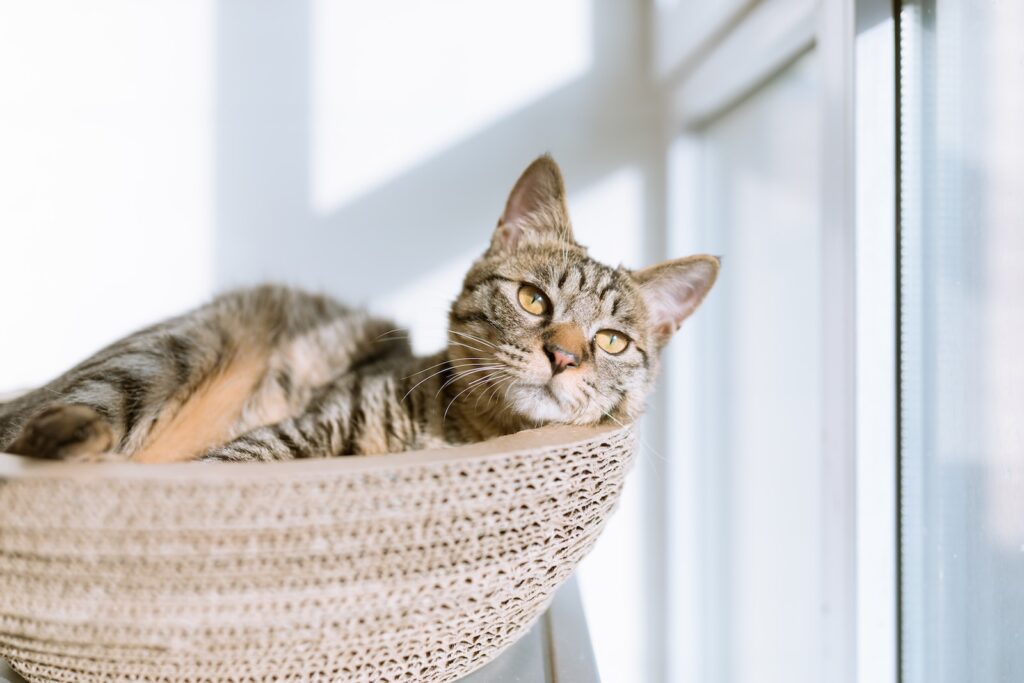Can Cats Eat Lamb? — Yes, They Can
When it comes to adding variety to your feline friend’s diet, lamb can be a great option. Cats can indeed eat lamb, and it can provide them with various nutritional benefits. However, as with any new food, there are a few things to consider to ensure your cat’s health and well-being.
Can Kittens Eat Lamb?
Yes, kittens can also enjoy lamb in their diet. However, it is essential to introduce it gradually and in small portions. Their digestive systems are still developing, so it’s crucial to monitor their response and consult with your veterinarian if you have any concerns.
Things to consider when feeding lamb to kittens?
When feeding lamb to kittens, it’s important to ensure that the meat is cooked thoroughly to kill any potential bacteria or parasites. Additionally, kittens have smaller teeth, so offering smaller, bite-sized pieces can make it easier for them to eat and digest.
Nutritional Benefits of Lamb for Cats — Why Lamb is Good for Cats?
Supports Muscle Growth and Maintenance
Lamb is a rich source of high-quality protein, which is essential for cats to support their muscle growth and maintenance. Protein also helps with the production of enzymes, hormones, and antibodies, contributing to overall health and well-being.
Provides Essential Amino Acids
Lamb contains essential amino acids that cats cannot produce on their own. These amino acids are crucial for various biological processes, including maintaining a healthy coat, supporting a strong immune system, and promoting proper organ function.
Rich in Vitamins and Minerals
Lamb is packed with vitamins and minerals that are beneficial for cats. It is an excellent source of vitamin B12, which aids in red blood cell formation and neurological function. Additionally, lamb contains minerals such as zinc, iron, and selenium, which play vital roles in various bodily functions.
Provides Omega‑3 Fatty Acids
Lamb contains omega‑3 fatty acids, which are known for their anti-inflammatory properties. These fatty acids can help reduce inflammation in cats, supporting joint health and overall vitality. They also contribute to healthy skin and a shiny coat.
Promotes Digestive Health
Lamb is easily digestible for cats, making it a suitable protein source for those with sensitive stomachs or food allergies. It can help promote optimal digestion and nutrient absorption, leading to better overall digestive health.
Potential Allergies: Can Cats Be Allergic to Lamb?
While lamb is not a common allergen for cats, some individuals may develop an allergic reaction. It is essential to monitor your cat for any unusual symptoms or signs of allergy after introducing lamb into their diet.
Symptoms of Lamb Allergies in Cats
- Vomiting: Cats with a lamb allergy may experience frequent vomiting or gagging.
- Diarrhea: Digestive issues, such as diarrhea, can be a symptom of an allergic reaction to lamb.
- Skin Irritation: Cats may develop itchiness, redness, or rashes on their skin as a response to lamb allergies.
What to Do If Your Cat Shows Symptoms?
- Contact Your Veterinarian: If your cat exhibits symptoms of lamb allergies, it is best to consult with your veterinarian. They can provide guidance on proper diagnosis and recommend suitable dietary changes if necessary.
- Elimination Diet: Your vet may suggest an elimination diet to identify the specific trigger and remove lamb from your cat’s diet temporarily. This process involves gradually reintroducing foods to pinpoint the allergen.
- Alternative Protein Sources: If your cat is allergic to lamb, your veterinarian can help you find alternative protein sources that meet their nutritional needs.
Recommended Amount: How Much Lamb Can a Cat Consume?
The recommended amount of lamb for your cat will depend on various factors, including their age, weight, and overall health. It’s best to consult with your veterinarian to determine the appropriate portion size and frequency of feeding lamb to your feline friend.
Things to Consider When Feeding Lamb to Cats
When feeding lamb to cats, ensure that it is cooked thoroughly to eliminate any potential bacteria or parasites. Additionally, avoid seasoning or adding spices, as some ingredients commonly used in human recipes can be harmful to cats.
How to Feed Lamb to Cats: A Quick Guide
Introducing lamb to your cat’s diet can be a delightful experience. Here’s a quick guide to feeding lamb to your feline friend:
Lamb and Vegetable Stew
Ingredients:
- Lamb pieces (cooked and boneless)
- Steamed vegetables (such as carrots and peas)
- Water or low-sodium chicken broth
Instructions:
- Combine the cooked lamb and steamed vegetables in a bowl.
- Add a small amount of water or low-sodium chicken broth to create a stew-like consistency.
- Mix well and serve a small portion to your cat, ensuring it has cooled down to an appropriate temperature.
Remember to monitor your cat’s response after introducing lamb to their diet and make any necessary adjustments to ensure their well-being.
Conclusion
In conclusion, cats can safely consume lamb as part of their diet. It provides them with essential nutrients, supports muscle growth, and offers various health benefits. However, it’s important to introduce lamb gradually, monitor your cat for any potential allergies, and consult with your veterinarian for personalized dietary recommendations. By following these guidelines, you can add a tasty and nutritious option to your cat’s menu.






